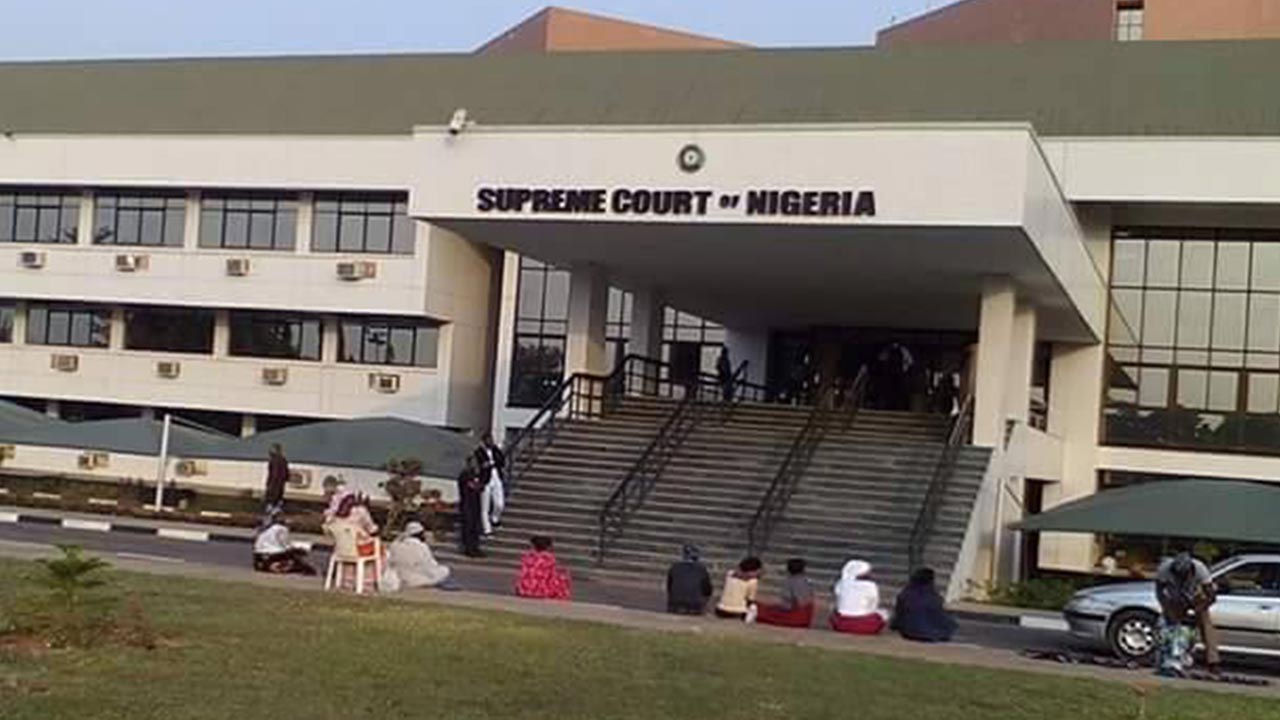Introduction
The Supreme Court of Nigeria, as the apex court in the judicial hierarchy, occupies a position of final authority on questions of law. Its decisions shape how the law is interpreted, set legal precedents, and guide how lower courts should act. Yet, this finality does not equate to infallibility (a reality famously captured in the often-quoted aphorism attributed to the U.S. Supreme Court – Justice Robbert Jackson in the case of Brown v. Allen [1] and creatively applicable to Nigerian jurisprudence): “We are not final because we are infallible, but we are infallible only because we are final.” The weight of this principle becomes evident when the Supreme Court of Nigeria confronts the need to reconsider its own precedents considering evolving legal reasoning or socio-economic realities.
This article therefore examines the case of Taan v. SCOA (Nig.) Plc [2], which is the recent decision of the Supreme Court, departing from its earlier decision in Benjamin v. Kalio [3]. It reviews the legal trajectory of the Supreme Court from Benjamin v. Kalio to Abdullahi v. Adetutu [4] and ultimately to Taan v. SCOA (Nig.) Plc, where the Apex Court finally settled the controversy on the admissibility of unregistered registrable land instruments. The article also evaluates the implications of this jurisprudential shift for practitioners, litigants, and the broader Nigerian land law regime.
The Conflicting Decisions: Benjamin v. Kalio and Abdullahi v. Adetutu
Prior to 2025, Nigerian jurisprudence reflected conflicting positions on the admissibility of unregistered but registrable land instruments. The conflict arose from two seemingly contradictory Supreme Court decisions: Benjamin v. Kalio (2018) 15 NWLR (Pt. 1641) 38 and Abdullahi v. Adetutu (2020) 3 NWLR (Pt. 1711) 338. [5]
In Benjamin v. Kalio, the Supreme Court, sitting as a full court, in a unanimous decision, dismissed the appeal. The Court held that an unregistered registrable instrument could still be admitted in evidence to prove title to land. The Court reasoned that since the admissibility of documents is governed by the Evidence Act, a federal law on the Exclusive Legislative List, State laws such as the Land Instruments Registration Law could not render such instruments inadmissible where they are otherwise relevant. Consequently, the Court held that Section 20 of the Rivers State Land Instruments Registration Law (which rendered such documents inadmissible if unregistered) was void to the extent of its inconsistency with the Evidence Act [6].
However, in Abdullahi v. Adetutu, the Supreme Court took a markedly different position. It held that where an unregistered registrable instrument is tendered to establish title to land or an interest in land, it is inadmissible. The Court reaffirmed that registration under applicable land laws is a mandatory precondition to admissibility in such instances. The rationale was that the purpose for which a document is tendered determines its admissibility. If it is tendered merely as evidence of a transaction or for acknowledging payment, it may be admissible; but not when tendered to prove title.
This divergence triggered intense academic and professional debate. See, for instance, the article written by the author titled, “The Effect of a Registrable Land Instrument that is Not Registered,” available at https://loyalnigerianlawyer.com/the-effect-of-a-registrable-land-instrument-that-is-not-registered/ [7]. See also journal article written by Handsome O. Kinikanwo Esq., titled, “Admissibility of Unregistered Registrable Instrument to Prove Ownership in Land: Benjamin v Kalio (2018) 15 NWLR (pt 1641) 38 and Abdullahi v Adetutu (2020) NWLR (pt1711) 338 (SC), As Case Study” [8].
Resolution in Taan v. SCOA (Nig.) Plc (2025) 6 NWLR (Pt. 1985) 1
In the extant case of Taan v. SCOA (Nig.) Plc, the court resolved the ambiguity and settle the controversy surrounding the admissibility or otherwise of registrable title instrument that is not registered.
The brief fact of the case leading to the decision as it relates to the title instrument was that in 1981, the 2nd respondent obtained a 99-year lease from the Onitire family over a property in Lagos. A year later, the 2nd respondent subleased the property to the 1st respondent for 25 years, ending in 2006. Later, the 2nd respondent transferred interest in the property to the 3rd respondent via a trust deed and deed of assignment. The appellant, initially involved as an intermediary in the transaction, later claimed joint ownership based on an alleged deed of agreement dated 25th May 1983.
The 2nd respondent denied ever executing such an agreement and maintained that the appellant was merely an agent. The appellant sued the 1st respondent for ownership, prompting the 2nd and 3rd respondents to join the suit. At trial, the appellant’s alleged deed of agreement (Exhibit “C”) was admitted despite being unstamped and unregistered. Similarly, the 2nd respondent’s trust deed and deed of assignment (Exhibits “L” and “M”) in favour of the 3rd respondent were also admitted.
However, in its judgment, the trial court held that Exhibit “C” was inadmissible as proof of title due to non-registration in accordance with Section 15 of the Land Instruments Registration Law of Lagos State. It also found that Exhibits “L” and “M” could not confer legal title as they were unregistered but admissible to grant equitable title in favour of 3rd respondent. The appellant’s case was dismissed.
On appeal, the Court of Appeal affirmed the trial court’s decision to reject Exhibit “C” as inadmissible but further held that Exhibits “L” and “M” were also wrongly admitted. The Court below held that title remained with the 2nd respondent based on Exhibit “A”, a document not challenged by any party.
Still dissatisfied, the appellant appealed to the Supreme Court, raising the issue of whether Exhibit “C” was rightly rejected by the lower courts [9].
In resolving the issue raised, the Supreme Court provided definitive and final guidance in the leading judgment of Ogbuinya, JSC, where his lordship confirmed at page 44, paras C–D that:
“Recently, in Abdullahi v. Adetutu…, this court, per Nweze, JSC, of the blessed memory, re- echoed the misfortune of an unregistered registrable instrument in these illuminating words:
An unregistered registrable instrument, sought to be tendered for the purpose of proving or establishing title to land or interest in land, would be inadmissible under section 15 of the land Instruments Registration Law ….
Such a document, derided as an “amorphous document”…is not receivable in evidence for the purpose of establishing any right, title or interest in land being unregistered ….
This is the bane of the deed of agreement, the exhibit C, which was brandished by the appellant to impregnate the appeal with success. In so far as it exhibited the undignified status of an unregistered registrable instrument with the intent to prove or establish the appellant’s joint legal title or interest in the property, it was mired in the quicksand of inadmissibility having flagrantly defiled and treated the compulsory provision of section 15 of the Law with utter disdain and contempt. This is notwithstanding that it was adduced in evidence, as the exhibit C, with the concurrent consent of the parties.”
In a concurring judgment, Abiru, JSC, also expressly disavowed the precedent set in Benjamin v. Kalio, stating at pages 63–64, paragraph H:
“Counsel referred to the decision of this court in Benjamin v. Kalio… wherein he said the court nullified the effect of section 15 of the Lands Instruments Preparation and Registration Law… Counsel conveniently forgot to mention that this court has since abandoned this decision and has subsequently restored the position of the law to as it were in the case of Abdullahi v. Adetutu… This court per Nweze, J.S.C. (of blessed memory) reiterated in that case at page 363 that:
“An unregistered registrable instrument sought to be tendered for the purpose of proving or establishing title to land or interest in land, would be inadmissible under Section 15 of the Lands Instruments Registration Law.
Such a document, derided as an ‘amorphous document’… Is not receivable in evidence for the purpose of establishing any right title or interest in land being unregistered…”
The point must be made that the attempt by counsel to the appellant to rely on the decision of this court in Benjamin v. Kalio… was totally inapposite. The decision went against a deluge of other decision of this court on the same point. It is a principle of jurisprudence that a decision of court which goes against an avalanche of other case law authorities on the same point does not constitute a just decision nor does it amount to good law.”
Though Abiru, JSC’s pronouncement came from a concurring judgment, it directly addresses and resolves the conflicting authorities. The Court’s strong language in both leading and concurring opinions underscores a unified intention to correct its previous stance and restore consistency.
Legal Implications
- The Supreme Court’s final position in Taan v. SCOA (Nig.) Plc has brought much-needed clarity to Nigerian land law that unregistered registrable land instruments cannot be tendered to prove title or interest in land. If admitted for such purposes, they are liable to be expunged from the record.
- However, such instruments may still be admissible for other limited purposes, such as proving receipt of payment or existence of a transaction.
Conclusion
The article re-established a powerful reminder that while the Supreme Court is the final arbiter of the law, its pronouncements are subject to evolution in the pursuit of legal coherence. As the Court itself affirms through its jurisprudence, it is final not because it is infallible, but it is infallible because it is final.
With this clarification, all stakeholders in land transactions (particularly legal practitioners and investors) must exercise due diligence to ensure compliance with registration laws. The failure to do so may now have fatal consequences for land claims and rights.
Endnotes
- 344 U.S. 443 (1953)
- (2025) 6 NWLR (Pt. 1985) 1.
- (2018) 15 NWLR (Pt. 1641) 38.
- (2020) 3 NWLR (Pt. 1711) 338.
- “Yes, We Have Departed from Benjamin v. Kalio: The Supreme Court Confirms in Taan v. SCOA (Nig.) Plc (2025) 6 NWLR (Pt. 1985) 1,” available at: https://dnllegalandstyle.com/dnl/yes-we-have-departed-from-benjamin-v-kalio-the-supreme-court-confirms-in-taan-v-scoa-nig-plc-2025-6-nwlr-pt-1985-1/ (accessed 26 May 2025).
- Review of Kalio v. Benjamin (2018) 15 NWLR (Pt. 1641) 38. https://www.sooblaw.com/resources/10 (accessed 27 May 2025)
- The Effect of a Registrable Land Instrument that is Not Registered, available at:https://loyalnigerianlawyer.com/the-effect-of-a-registrable-land-instrument-that-is-not-registered/ (accessed 26 May 2025).
- https://www.nigerianjournalsonline.com/index.php/ESUTPLJ/article/view/5617 (accessed 27 May 2025).
- (Note: The resolution of the Supreme Court on Exhibit C was also the same resolution against exhibits “L” and “M”).





